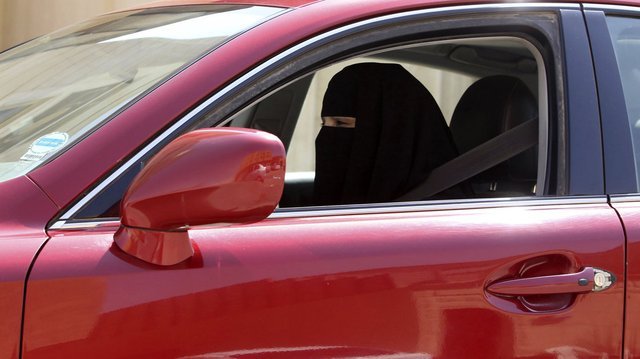Saudi Arabia Issues Warning to Women Drivers, Protesters

Without outlining how laws would be applied and what punishment might be doled out to offenders, Saudi Arabia's Interior Ministry spokesman, Maj. Gen. Mansour Al-Turki said, "All violations will be dealt with -- whether demonstrations or women driving."
"Not just on the 26th. Before and after," added Al-Turki. "At all times."
Meanwhile, several Saudi women supporting the October 26th Women's Driving Campaign say they received threatening calls Thursday from men claiming to represent the Interior Ministry, according to women's rights activists who requested anonymity. The callers warned the women not to drive before, on or after Saturday, the activists said.
Some of the activists expressed doubt that the callers were actually from the Interior Ministry.
Originally, Al-Turki denied any calls were made, but he later contacted CNN to clarify his comments.
He said the phone calls were a public relations move the ministry undertook to help some people understand a written statement made Wednesday.
Saudi Arabia had released a statement that said, "Laws will be fully enforced that day."
The statement, which was issued on Saudi Arabia's official news agency, also said, "The laws of the Kingdom prohibit activities disturbing the public peace and opening venues to sedition."
Al-Turki told CNN that some women were contacted by the Interior Ministry and were asked to not drive.
"There was absolutely no threat to the women contacted. The communication was made to make sure the women understood the statement," he told CNN. "It seemed some people did not understand the statement, and they expressed this publicly in one way or another."
Several supporters of the driving campaign said they didn't believe the government was aiming that statement at female drivers, but at those who might stage protests in a nation where they're outlawed. Saudi Arabia has tight controls on all gatherings.
Al-Turki made it clear the statement applies to both parties.
Activist Manal Al-Sharif, who now lives in the United Arab Emirates after being jailed for a week after posting a video of herself driving in 2011, took it as a positive sign that the government has stated its position on women driving.
"They kept telling the world that the women's driving issue was one for Saudi society to decide upon," she said. "Society is now showing it is supportive of the idea of women driving. The government's reaction makes it very clear this is not a societal decision. This is a political decision."
She further characterized the government statement as "clarity."
"We've been in the dark for a long time. Now we're in the light and we know what we're facing," she said.
Saudi blogger and opinion writer Tamador Alyami, a supporter of the campaign who recently posted a video showing her driving in the city of Jedda, noted that a Twitter account supporting Saudi political prisoners recently "tweeted a message saying you have to take advantage of this day, that it's an opportunity to go out there and demonstrate and ask for the rights of the political prisoners."
No traffic law specifically prohibits women from driving in Saudi Arabia, but religious edicts there are often interpreted to mean women are not allowed to operate a vehicle.
In late September, an online movement was launched urging Saudi women to get behind the wheel. The October 26th Women's Driving Campaign quickly gained momentum, with its online petition having so far garnered more than 16,000 signatures.
In addition, numerous Saudi women have already taken to the streets -- filming themselves driving in various cities, and then uploading those videos to YouTube.
The language of the Interior Ministry's statement "shows that it wasn't really about the 26th of October movement," Alyami said. "They've known about this campaign for a few months and there's been no attempt to stop (it). If they've let it go this far, that should reassure us."
Indeed, many women who have been out driving report having been spotted by traffic police who haven't stopped them.
Alyami said she drove her car again on Wednesday to her parents' house and passed two traffic policemen.
"One of the traffic policemen saw me and didn't stop me. I was scared, but when he just drove by and went away, I felt so happy, so reassured and more determined than ever to go out on the 26th."
Amnesty International and Human Rights Watch each issued a statement calling for an end to the ban.
"It's past time to address the country's systemic discrimination; driving could open roads to reform," said Rothna Begum, a researcher with Human Rights Watch.
Nouvelles connexes


